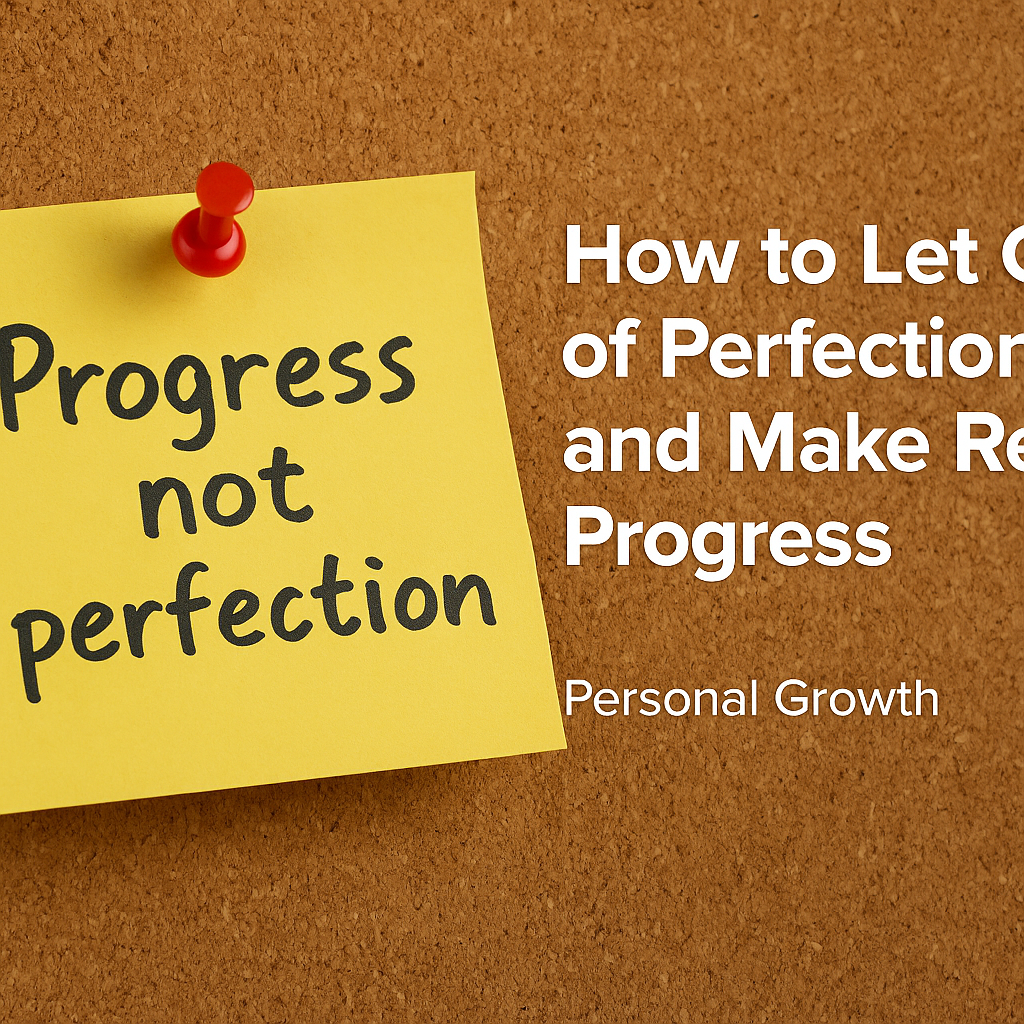Perfectionism looks like high standards on the outside—but inside, it often feels like anxiety, procrastination, and self-doubt. It convinces you that nothing is ever good enough. That you’re not good enough.
But here’s the truth: progress beats perfection every time.
In this article, you’ll learn how to recognize perfectionist thinking, release unrealistic expectations, and take imperfect action with confidence.
What Is Perfectionism—Really?
Perfectionism isn’t just about wanting to do things well. It’s about:
- Fear of making mistakes
- All-or-nothing thinking
- Over-identifying with outcomes
- Constant self-criticism
- Avoiding action because of fear of failure
It’s not excellence—it’s avoidance dressed as ambition.
1. Notice the Voice of Perfectionism
Start by paying attention to how perfectionism speaks in your mind:
- “If this isn’t perfect, it’s worthless.”
- “I’ll fail and people will judge me.”
- “Better to wait than mess this up.”
- “I should have done more/better/faster.”
Awareness is the first step to change.
2. Challenge Unrealistic Standards
Ask yourself:
- “Who says this has to be perfect?”
- “What would 80% done look like?”
- “Would I expect this of someone I love?”
- “Is this standard helping me—or holding me back?”
Most “rules” are ones we’ve invented—and we can rewrite them.
3. Take Imperfect Action—On Purpose
The best antidote to perfectionism is starting messy.
Try:
- Posting something online before it feels “ready”
- Sending the email without over-editing
- Trying a new hobby badly—for fun
- Saying “done is better than perfect”
Confidence grows from action, not overthinking.
4. Focus on Progress, Not Performance
Track what you’re doing, not just the result.
Celebrate:
- Showing up when you didn’t feel like it
- Finishing a task without obsessing
- Taking a risk
- Choosing rest over burnout
Your worth isn’t tied to your productivity.
5. Practice Self-Compassion, Not Self-Criticism
Speak to yourself like a mentor or close friend would:
- “It’s okay to not get it right the first time.”
- “You’re learning—that’s what matters.”
- “You did your best today, and that’s enough.”
- “One mistake doesn’t define you.”
Compassion creates courage.
6. Set Healthy Boundaries With Your Inner Critic
You can’t eliminate the voice of perfectionism—but you can stop letting it run the show.
When it speaks up, respond with:
- “Thanks for your opinion, but I’ve got this.”
- “I’m choosing to try anyway.”
- “I don’t need to earn my worth—I already have it.”
Detach, don’t suppress.
7. Redefine What “Success” Means to You
Let go of society’s definitions of success:
Perfect body, perfect life, perfect career.
Instead, define success as:
- Being aligned with your values
- Taking care of your mental and physical health
- Creating, learning, growing
- Being kind—to yourself and others
Your version of success can be human—not flawless.
Final Thought: Done Is Better Than Perfect
Perfection is a moving target. It keeps you stuck. It drains your joy.
So let it go. Choose progress. Choose courage. Choose showing up—imperfect, but fully alive.
Because that’s where the real growth happens.

